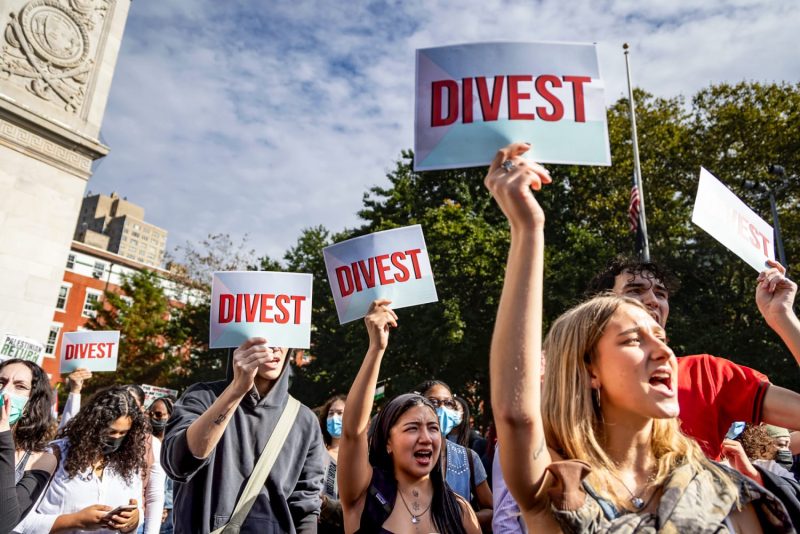In recent years, college protesters have been advocating for their schools to divest from ties to Israel as a way to show solidarity with Palestine. This movement has gained momentum across various campuses, sparking debates and discussions about the implications and consequences of such demands. Divestment, in this context, refers to the act of universities and colleges withdrawing investments and financial support from companies or entities that have associations with Israel, particularly in relation to the ongoing Israeli-Palestinian conflict.
The call for divestment stems from the belief that investing in companies that support Israel financially contributes to the perpetuation of the conflict and the violation of human rights in the region. Many students and activists argue that by cutting ties with such entities, institutions can take a stand against the Israeli government’s policies and actions towards Palestinians, including occupation, settlement expansion, and military aggression. For these protesters, divestment is seen as a form of non-violent resistance and a way to pressure the Israeli government to change its practices.
However, the issue of divestment from Israel is complex and divisive, with both supporters and opponents presenting compelling arguments. Those in favor of divestment see it as a moral imperative and a means to hold Israel accountable for its actions. They argue that universities have a responsibility to ensure that their investments align with ethical principles and human rights standards. By divesting from Israel, colleges can send a strong message condemning the occupation and advocating for a just resolution to the conflict.
On the other hand, opponents of divestment argue that such measures are one-sided and unfairly target Israel, while ignoring the complexities of the conflict. They contend that divestment campaigns often oversimplify a nuanced geopolitical issue and fail to consider the broader context of the Israeli-Palestinian conflict. Critics also raise concerns about the potential impact of divestment on academic freedom and the ability of universities to engage in open dialogue and exchange of ideas.
Moreover, the debate surrounding divestment from Israel raises questions about the role of educational institutions in promoting social justice and human rights. While some argue that divestment is a powerful tool for advocating for change and raising awareness about human rights abuses, others caution against the politicization of campus investments and the potential repercussions on academic freedom and intellectual diversity.
In conclusion, the movement calling for universities to divest from ties to Israel reflects a growing concern about human rights violations and social justice issues around the world. While the debate over divestment is contentious and multifaceted, it underscores the important role that educational institutions play in shaping values, promoting ethical behavior, and contributing to social change. Ultimately, the decision to divest from Israel or any other entity requires careful consideration of the implications and consequences, as well as a commitment to upholding principles of justice, peace, and respect for human rights.
